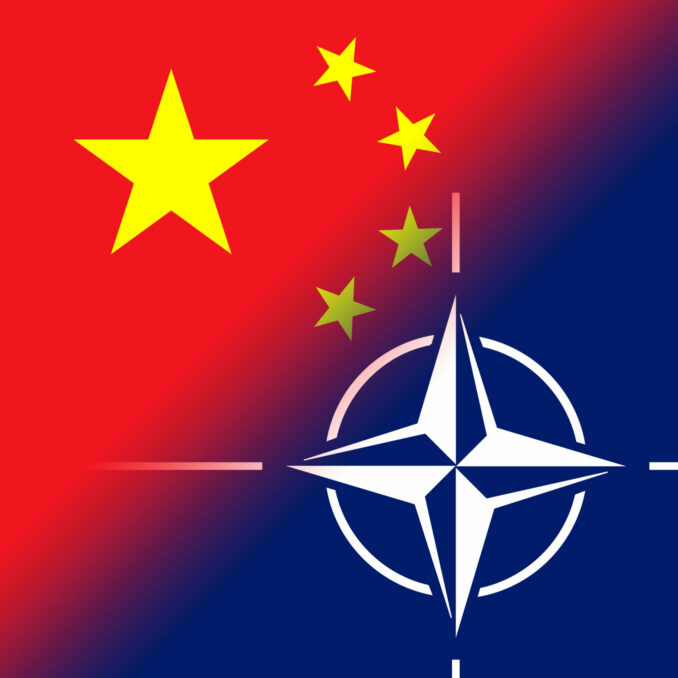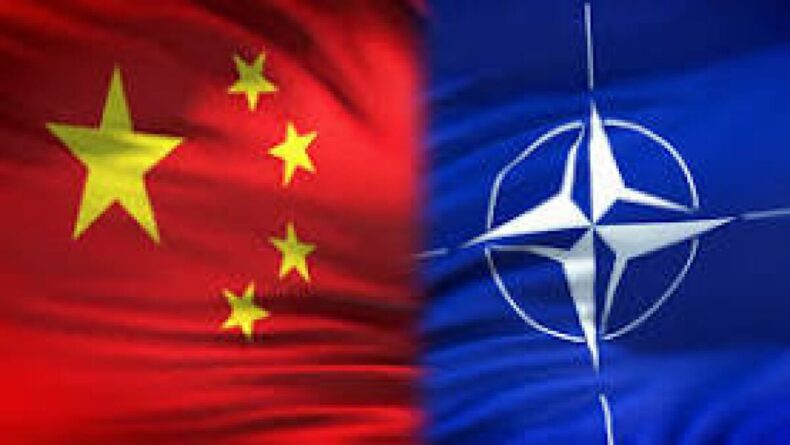China has reacted angrily to a communique portraying the country as a significant challenge to NATO’s interests and security. This comes after the NATO summit recently concluded in Vilnius . The communique, issued by NATO leaders, expressed concerns about China’s “stated ambitions and coercive policies,” stating that the People’s Republic of China (PRC) poses a threat to the alliance’s interests, security, and values. The document highlighted PRC’s use of political, economic, and military tools to expand its global influence while remaining opaque about its strategic intentions and military build-up. NATO leaders also raised concerns about China’s hybrid and cyber operations, confrontational rhetoric, and dissemination of disinformation, which are perceived as harming Alliance security.
Table of Contents
The NATO declaration further pointed out that China and Russia are involved in a deepening strategic partnership, engaging in mutually reinforcing attempts to undermine the rules-based international order. The leaders urged Beijing to play a constructive role as a permanent member of the United Nations Security Council and condemn Russia’s aggression in Ukraine. The Chinese mission to the European Union vehemently criticized these remarks, asserting that NATO distorted China’s stance and intentionally aimed to undermine the country’s reputation.
The two-day summit also saw the attendance of leaders from Australia, Japan, New Zealand, and South Korea, reflecting rising tensions in the region concerning issues ranging from China’s assertiveness to North Korea’s recent missile tests. Japan’s Prime Minister Fumio Kishida reiterated that Japan has no plans to become a NATO member, clarifying the alliance’s announcement of opening a Tokyo liaison office, its first in the Asian region. These four countries, known for their support of Ukraine through sanctions and military assistance, were invited to last year’s NATO summit in Madrid.
China Condemns NATO’s Actions and Global Times Accuses the Alliance of Meddling in Regional Affairs
Amidst a two-day summit in Vilnius, tensions between China and NATO have reached new heights following a strongly-worded communique issued by NATO leaders. The communique portrayed China as a significant challenge to the alliance’s interests and security, citing China’s “stated ambitions and coercive policies” as sources of concern. It emphasized on employment of various tools, including political, economic, and military by Beijing to expand its global influence while keeping its strategic intentions and military buildup opaque. The document further highlighted China’s hybrid and cyber operations, confrontational rhetoric, and dissemination of disinformation, which NATO leaders perceive as detrimental to Alliance security.
In a direct response, China’s mission to the European Union condemned NATO’s comments, accusing the alliance of distorting China’s position and deliberately attempting to discredit the nation. The mission firmly rejected the allegations and warned that any actions undermining China’s legitimate rights and interests would be met with a resolute response. China’s state media, particularly the Global Times tabloid, launched scathing attacks on NATO, depicting the alliance as a tool of U.S. interests and a source of conflict wherever it operates. The Global Times editorial went on to assert that most Asian countries not only refrain from welcoming NATO but also view it as an ominous entity that should be avoided at all costs.
NATO officially recognizes risks posed by Chinese policies
The NATO declaration released on Tuesday builds upon last year’s Strategic Concept, which marked the alliance’s first official recognition of the risks posed by China’s ambitions and policies. The declaration underscored the significance of the Asia-Pacific region for NATO, as developments in this area can directly impact Euro-Atlantic security.

The recent NATO summit has further intensified tensions between China and the alliance, with the Asian giant staunchly opposing any expansion of NATO’s presence in the Asia-Pacific region. While NATO leaders express concerns about China’s actions and their global security implications, China perceives NATO as an unwanted actor meddling in regional affairs. The clash between PRC and NATO holds far-reaching implications and is expected to shape the geopolitical dynamics of the Asia-Pacific region in the years to come.













